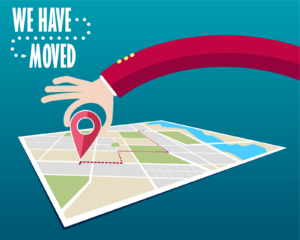Which yellow brick road will take you to a new and more prosperous Emerald City?
After all that you once knew was caught up in the pandemic tornado, where have you and your company landed? 5 months into 2021 and we are standing very differently today than at the beginning of 2020.
 We’ve all been picked up and spun around and pushed our crisis leadership skills to the max. This, together with your determination to keep your purpose relevant for the ever changing needs of your customer, has landed your company in a new place, with new threats and friends to discover. Now you’re here, the opportunities are beginning to shine brighter than the crisis warning lights. As we move into Spring, conversations have a more optimistic, opportunist slant with business leaders beginning to understand consumer patterns, stabilise their core business model, and enable a stronger platform to innovate from and add more value to their offer.
We’ve all been picked up and spun around and pushed our crisis leadership skills to the max. This, together with your determination to keep your purpose relevant for the ever changing needs of your customer, has landed your company in a new place, with new threats and friends to discover. Now you’re here, the opportunities are beginning to shine brighter than the crisis warning lights. As we move into Spring, conversations have a more optimistic, opportunist slant with business leaders beginning to understand consumer patterns, stabilise their core business model, and enable a stronger platform to innovate from and add more value to their offer.
“There’s no place like home”
Home, or how it all looked and worked before last year, no longer exists. No matter how much we click our ruby red slippers, unlike Dorothy, we can’t return.

We are now in a transition period; an essential time to regroup and shift from a crisis style of leadership with rapid strategic action-led planning, into a style that seeks opportunity. A period where we embrace change, not resist it.
Transitioning begins with understanding the answer to “where did you land?” Knowing your situation and surroundings makes it easier to unify the core of who your company is today, and examine to what extent it was actually delivering your purpose. See this moment as the calm after the storm, with the space to regroup and prepare to move on into a new era.
Is your unified core strong enough to still meet your customer’s bigger expectations? Everyone got caught up in the Covid tornado – your customers included – and we are seeing a significant shift in their demand for companies to play a more responsible role in the community. It’s beyond ESG (environmental, social, and corporate governance), it’s about how companies make their product in the first place, how they treat their people, how they plan and manage for the future, whether they are making a stand and a difference by providing a product/service that truly benefits someone. Your customers want to know; are you putting more into the world than what you’re taking?
Inspiring us to rethink about where we have landed after the storm
If your company has survived, or even thrived, during the pandemic you might be feeling more resilient than ever before. After the triumph of reaching this point it can be a challenge to look at your business with fresh and critical eyes. “Why change what isn’t broken?”
In this transition period you have a window of opportunity to rethink the way forward, take what has worked forward and leave behind what the pandemic revealed to be no longer necessary. “What frogs in hot water can teach us about thinking again” is a TED talk by Adam Grant which covers the question of why we wait for a crisis to make the necessary changes. He highlights one of the main reasons is connected to the fact that grit and determination are highly celebrated character traits, and as a consequence we are overly trained to keep going even if it may be toward the wrong destination. This is especially true with entrepreneurs, where determination and sheer grit are sometimes what got us operational in the first place. It’s a hard trait to let go. One way Grant suggests to solve this is with a checkup – a quick review of your situation and how things are going.
Wyseminds’ work with entrepreneurs over the recent months has been to encourage curiosity about where they have landed after the pandemic before they travel down the similar path post crisis.
Perhaps it’s time to click your heels and say:
“There’s no place like my new home”
Wondering how strong your core is and whether you’re happy with where you’ve landed?You can use our Wyseway growth evaluation as a checkup, before you take your next right step down your yellow brick road.
Further references
What frogs in hot water can teach us about thinking again Adam Grant


 We’ve all been picked up and spun around and pushed our crisis leadership skills to the max. This, together with your determination to keep your purpose relevant for the ever changing needs of your customer, has landed your company in a new place, with new threats and friends to discover. Now you’re here, the opportunities are beginning to shine brighter than the crisis warning lights. As we move into Spring, conversations have a more optimistic, opportunist slant with business leaders beginning to understand consumer patterns, stabilise their core business model, and enable a stronger platform to innovate from and add more value to their offer.
We’ve all been picked up and spun around and pushed our crisis leadership skills to the max. This, together with your determination to keep your purpose relevant for the ever changing needs of your customer, has landed your company in a new place, with new threats and friends to discover. Now you’re here, the opportunities are beginning to shine brighter than the crisis warning lights. As we move into Spring, conversations have a more optimistic, opportunist slant with business leaders beginning to understand consumer patterns, stabilise their core business model, and enable a stronger platform to innovate from and add more value to their offer.